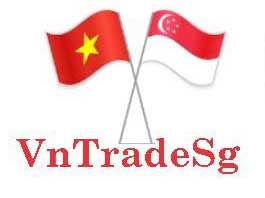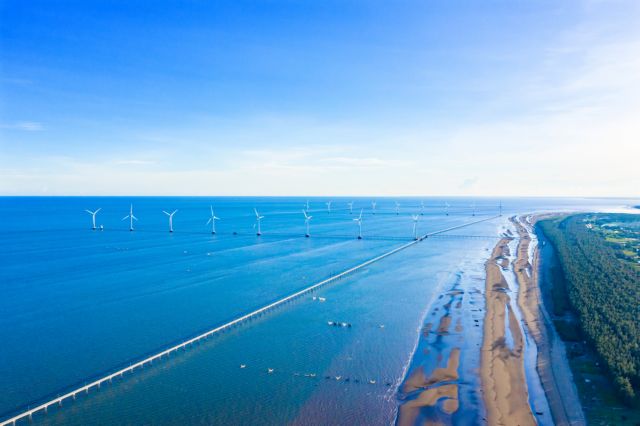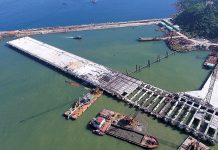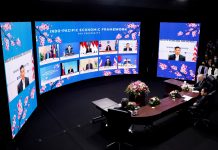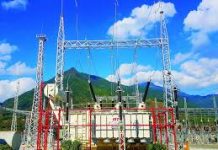The Ministry of Industry and Trade (MoIT) has asked the Prime Minister about the mechanism for ongoing solar power and transitional wind power projects to enjoy the incentive price.
In a recent document sent to the PM, the MoIT suggested investors of those projects negotiate electricity prices and power purchase and sale contracts with Việt Nam Electricity (EVN).
Of a total of 78,121 MW of installed capacity of electricity sources nationwide, there was 16,545 MW of solar power, including 8,904 MW of concentrated solar power and 7,660 MW of rooftop solar power and 4,126 MW of wind power that have been put into operation and have enjoyed the FIT (preferential purchase price) according to the Prime Minister’s decision.
However, the MoIT announced there were still many projects or parts of wind and solar power projects that had been implemented in practice but not been able to enjoy the FIT price in time.
Among them, 62 wind power projects with a total capacity of 3,479 MW had signed a power purchase agreement with EVN, but due to the expiration of the FIT price, could not set the electricity price.
At the same time, five projects with a total capacity of 452.62 MW were waiting for a determination of THE electricity price, while several other projects were in progress, said the ministry.
To avoid wasting social investment, the MoIT said: “It is necessary to determine the electricity price mechanism for projects.”
Accordingly, the ministry has proposed to the Prime Minister to completely solve the mechanism for the transition of wind power and solar power projects, remove difficulties for investors, and direct future wind and solar power projects.
Specifically, for transitional projects, the MoIT proposed the PM approve the mechanism reported in Document No. 17 from January 27, in which investors of transitional projects conduct electricity price negotiations and power purchase and sale contracts with EVN within the electricity generation price bracket and guidelines issued by the MoIT.
With the wind and solar power projects to be implemented in the future, the ministry proposed to approve the application of the electricity price negotiation mechanism and power purchase agreement similar to the transitional projects mentioned above, adding that it was to ensure the consistency of the legal corridor with the projects.
As for projects that have been recognised for commercial operation, the ministry proposed the PM issue a document to direct it to have a basis to guide the review of contracts between EVN and investors to harmonise the interests between the seller – the buyer – the electricity consumer and the state.
In addition, the ministry also requested the PM to annul Decision No 13 on the mechanism of solar power development, Decision No 37 and Decision No 39 on the mechanism of wind power development.
It was assigned to coordinate with the Ministry of Justice to prepare a Draft Decision, consult ministries and branches, and submit it to the PM for promulgation in accordance with the law.
Given the above proposals, the MoIT said as the legal basis for the EVN bidding for electricity purchase was unclear, the above proposals would ensure compliance with the law.
The ministry said the bidding mechanism for electricity purchase of projects that have investors and have been implemented in progress had not been regulated in legal documents, including the Law on Electricity, the Law on Prices, the Law on Bidding, and the Law on Bidding, Law on Property Auction and related guiding documents.
In addition, the MoIT also said that while it was complying with the bidding plan to buy electricity, it received lots of feedback from investors.
Most reacted strongly, expressing disagreement that the bidding for power purchase over several years did not have a solid legal basis, affecting the calculation of cash flow and the ability to pay back the capital and repay the bank debt of implemented projects.
VNS
